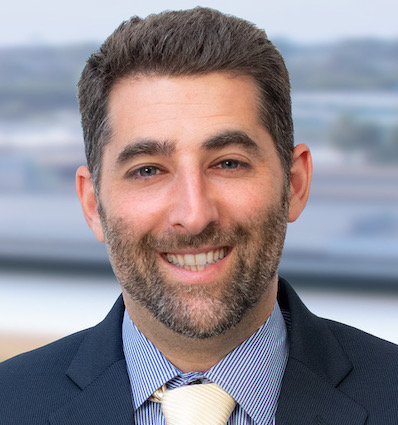Nick Jurkowitz, partner at California-based Fenton Law Group, represents and advises hospices and other health care providers on litigation and regulatory related matters.
He has represented providers in all aspects of administrative hearings and investigations, and providers in contract disputes, business torts, insurance fraud cases, employment discrimination cases, unlawful employment termination cases and Medicare and Medi-Cal fraud related cases.
He also counsels clients on complying with federal and state laws in the establishment of health care related businesses and ventures.
Jurkowitz recently spoke with Hospice News about the most significant legal hurdles that hospices are facing in 2020 and looking ahead to 2021.
Could tell me about your own professional background. What you’ve done in terms of hospice in your legal profession?
I am a health care attorney in Southern California, and we represent health care providers ranging anywhere from individual practitioners to hospice, home health, substance abuse treatment centers and pharmacies.
I have bought and sold hospices. I have set up hospices, represented them through insurance audits and Medicare audits and assisted some individual hospice owners in private investigations and things of that nature. It’s a substantial part of our practice.
In your experience, what would you say are the most pressing legal concerns for hospice providers?
Hospices are a targeted area in a highly regulated arena. Fraud is always the first and foremost concern you’d have in that type of industry. That could range anywhere from civil or criminal. The government could seek to recoup money paid if something was done improperly.
In order to have hospice you need a physician involved to certify the patient, and there are problems where physicians improperly certify a patient or physicians are incentivized to certify patients for reasons other than the patient’s specific condition. That usually involves a kickback or some sort of physician involvement with the referring organization itself. Any compensation arrangement whatsoever, between the physician and a hospital for example, is going to raise major red flags.
Another area of concern is billing. A problem may not necessarily rise to level fraud because fraud would require some sort of intentional act. Medicare will come back with a determination that the payment and the billing were erroneous. They’ll seek repayment of those funds. You have to go through that administrative process of preventing them from recouping the money, and what they’ll do is stop paying you in the future until they recoup their money that can be very devastating to one of these providers.
You have got to make sure that the billing is done correctly, appropriately, and that you have the documentation to support it.
Would you say that False Claims Act cases are the most prevalent legal issue for hospices?
The False Claims Act cases are either brought by the government or brought in the name of the government to basically say Medicare paid money based on a false claim that was submitted. That’s one area of enforcement. It’s a big area because private individuals and bring those actions.
Prevalent isn’t the way I would phrase it, but I would say that the most concerning would be actual criminal investigations, which are not so uncommon with hospices. It is an area that the government will focus on. It’s easy for them in many ways to uncover fraud, at least uncover a suspicion of fraud, because of patterns in billing and things like that.
Is there anything that hospices should be doing to protect themselves from potential litigation or investigation?
The first thing they should be doing is making sure that they’re fully informed of all the requirements and the regulations. It goes beyond just making sure that you’re not committing crime or committing fraud, but really understanding exactly what is involved in a certification and recertification process, making sure that they maintain all documentation, and that they have appropriate documentation.
Equally important is making sure that they understand the whole billing process very well. They should be have competent assistance in submitting the billing and doing the billing. Anytime there’s going to be an enforcement concern, you want to have your ducks in a row, to make sure that you have all the documentation to support what you’re doing.
Another issue that I’ve seen coming up in news reports is matters of drug diversion where staff have taken patients’ medications. I’ve seen some criminal charges filed in these instances. What are the legal risks to the hospice itself in those situations? What is their liability?
Hospices — just like any other health care facility or organization or entity that has any controlled substances in their possession — need to maintain them properly. That means the only certain designated people should be able to access those drugs.
Non-clinical people should not be able to access those drugs. They should be accessed only by designated clinicians in a manner in which patients need them. That means safeguarding [those medications], locking them up, regularly monitoring drugs that are being kept. The [U.S. Drug Enforcement Administration] has a whole list of requirements if you’re maintaining possession of controlled substances and making sure that they’re documented.



